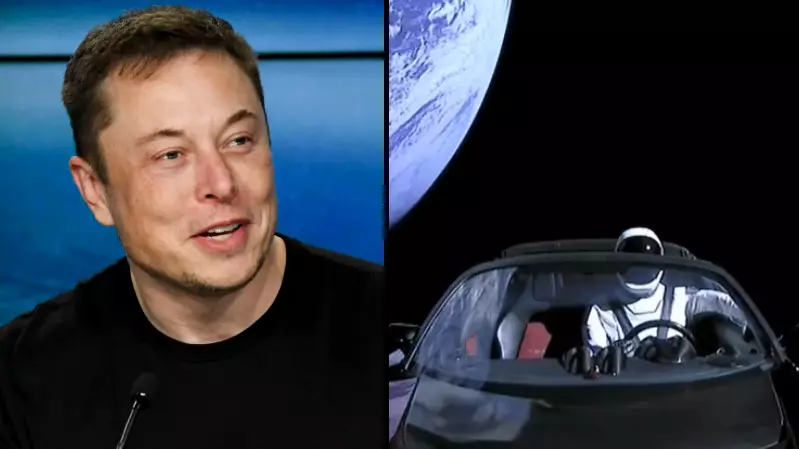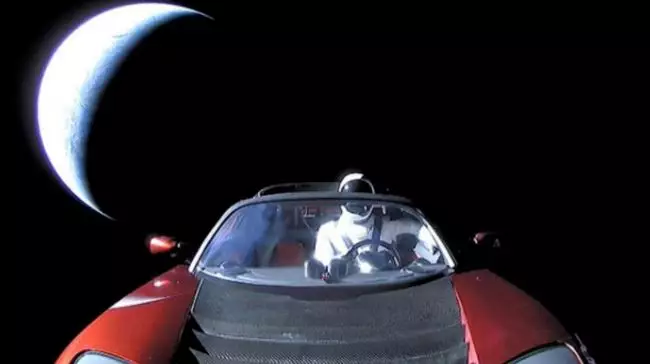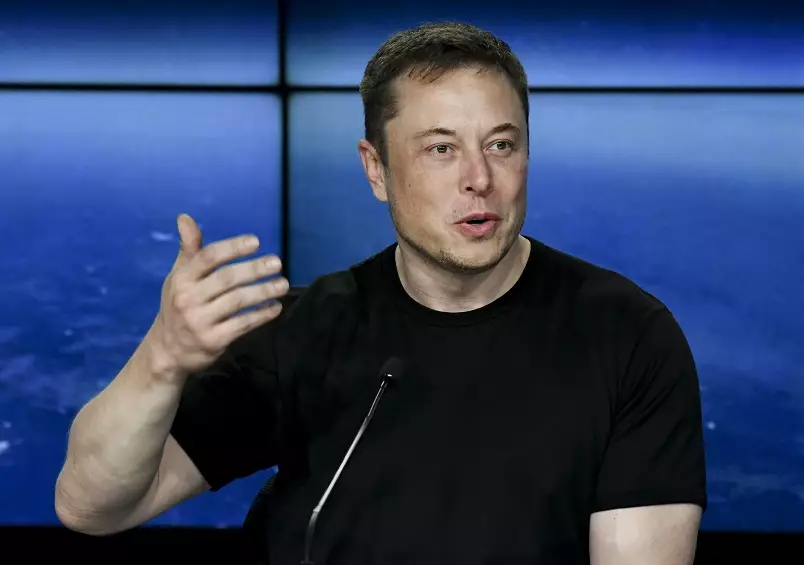
Elon Musk is a man who loves to grab a headline, but this is one that he might not savour: the car that he shot into space a few weeks back might well collide with earth.
The bright red Tesla sportscar that was aboard the SpaceX mission - piloted by a mannequin in a spacesuit, lest we forget - was intended to fly on past Mars and into the vastness of space, but scientists think that it might come back, reports the Independent.

The boffins have crunched the numbers and worked out the potential orbital path for the Tesla sports car over the next few million years, ascertaining that it will at some point collide with either the Earth or Venus, given its current trajectory.
Advert
Now it isn't worth calling up Bruce Willis and Ben Affleck just yet: they think that there is only a six percent chance of the sports car hitting its home planet in the next million years, with a 2.5 percent chance that it will hit Venus. In all likelihood, the space car, like an indecisive driver on a roundabout, will just keep going round and round indefinitely until it crashes into something.
The Tesla Roadster is en route out of the Earth's orbit and will briefly overlap with that of Mars, although Mars will be further along by the time it gets there, so no need to fear a collision. It will then loop outside of Martian orbit before going back inside of it and into that of the Earth in, well, ages, so don't think too much about it. Alright, by around 2021.
WATCH THE LAUNCH OF ELON MUSK'S FALCON HEAVY ROCKET
"On 6 February 2018, SpaceX launched a Tesla Roadster on a Mars crossing orbit," wrote the brains behind the study, Hanno Rein, Daniel Tamayo and David Vokrouhlicky.
Advert
"We perform N-body simulations to determine the fate of the object over the next several million years, under the relevant perturbations acting on the orbit. The orbital evolution is initially dominated by close encounters with the Earth. The first close encounter with the Earth will occur in 2091."

They continued: "The repeated encounters lead to a random walk that eventually causes close encounters with other terrestrial planets and the Sun. Long-term integrations become highly sensitive to the initial conditions after several such close encounters.
"By running a large ensemble of simulations with slightly perturbed initial conditions, we estimate the probability of a collision with Earth and Venus over the next one million years to be six percent and 2.5 percent, respectively. We estimate the dynamical lifetime of the Tesla to be a few tens of millions of years."
Advert
So that's all that cleared up then.
Featured Image Credit: PA / SpaceX